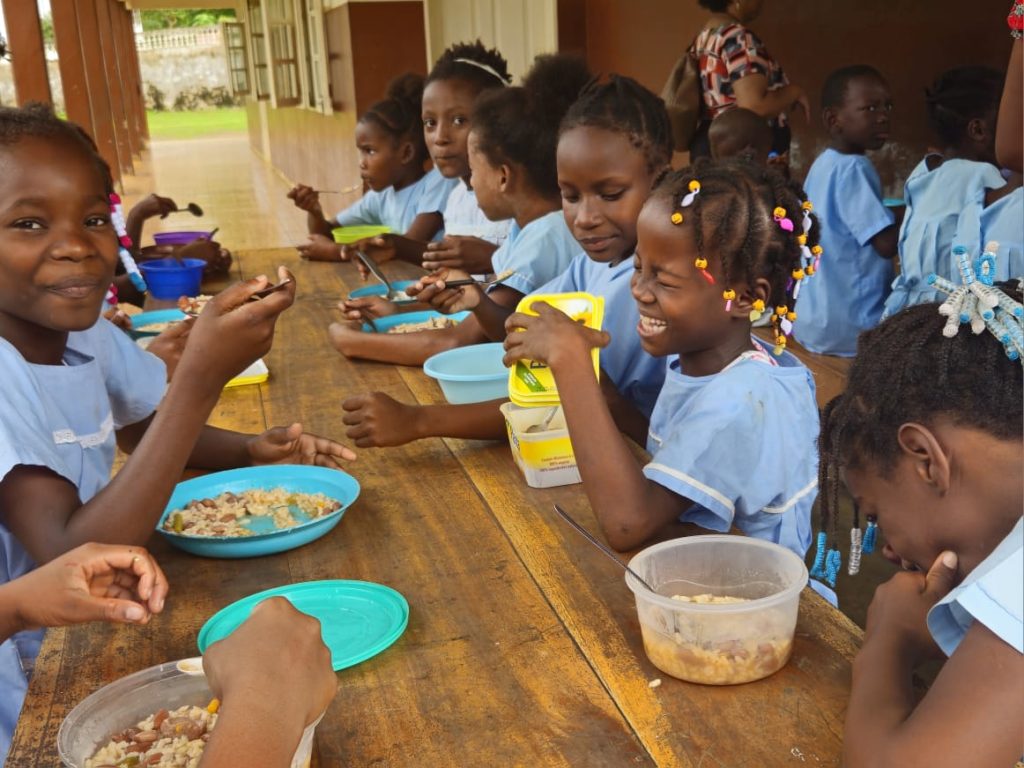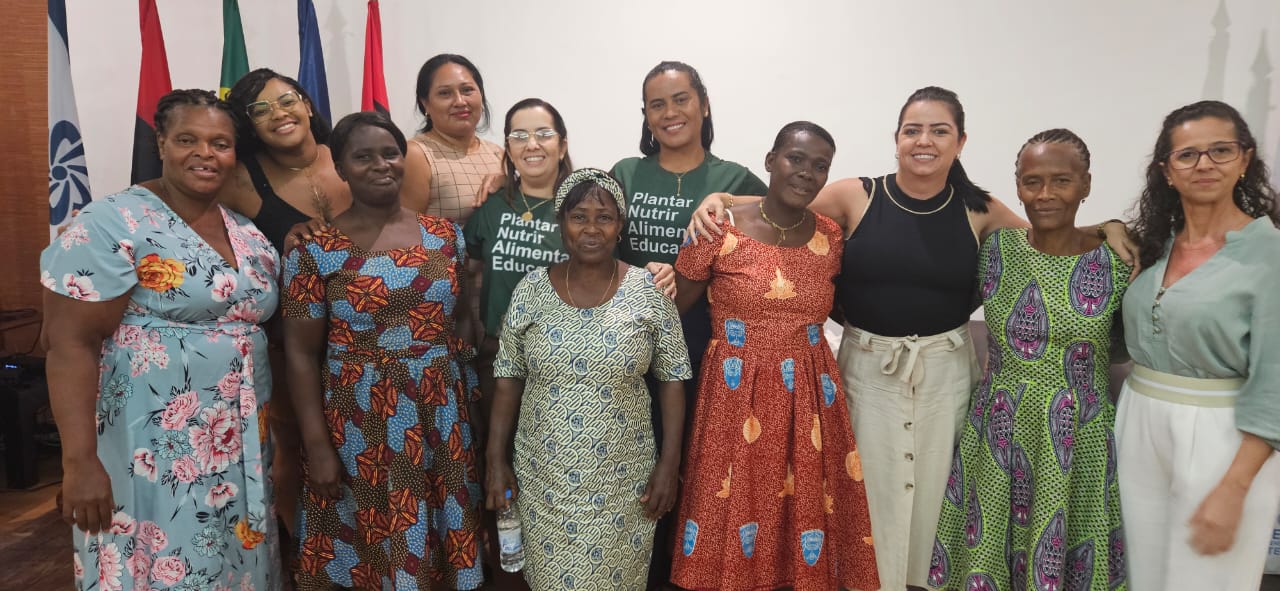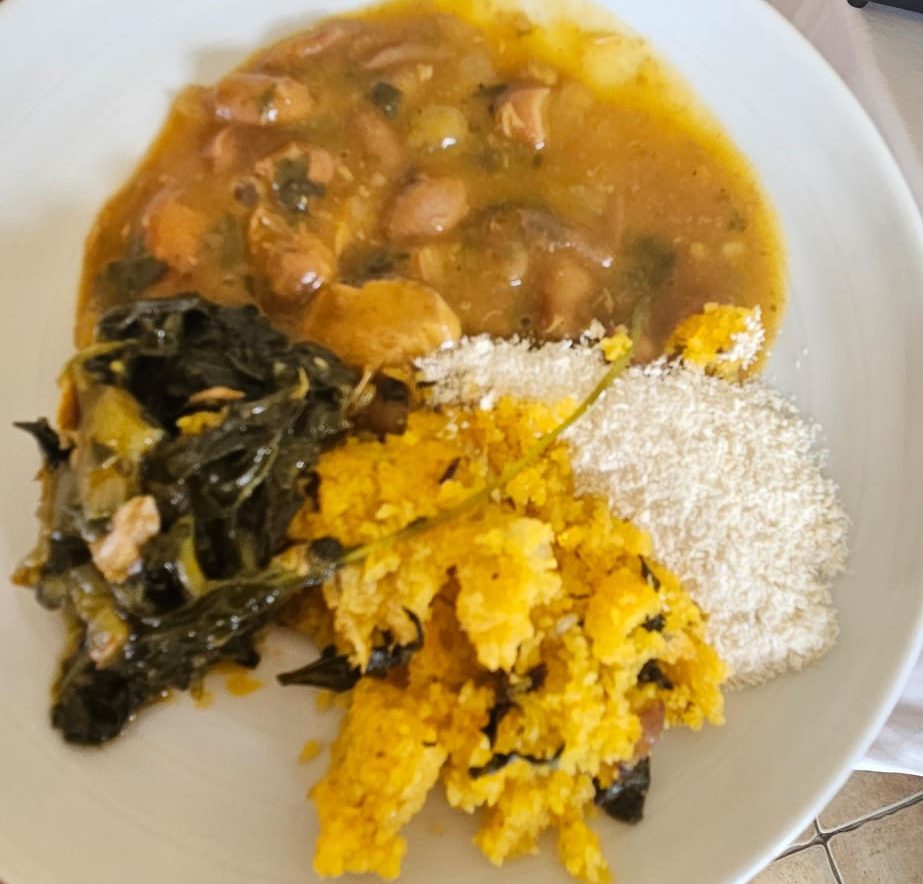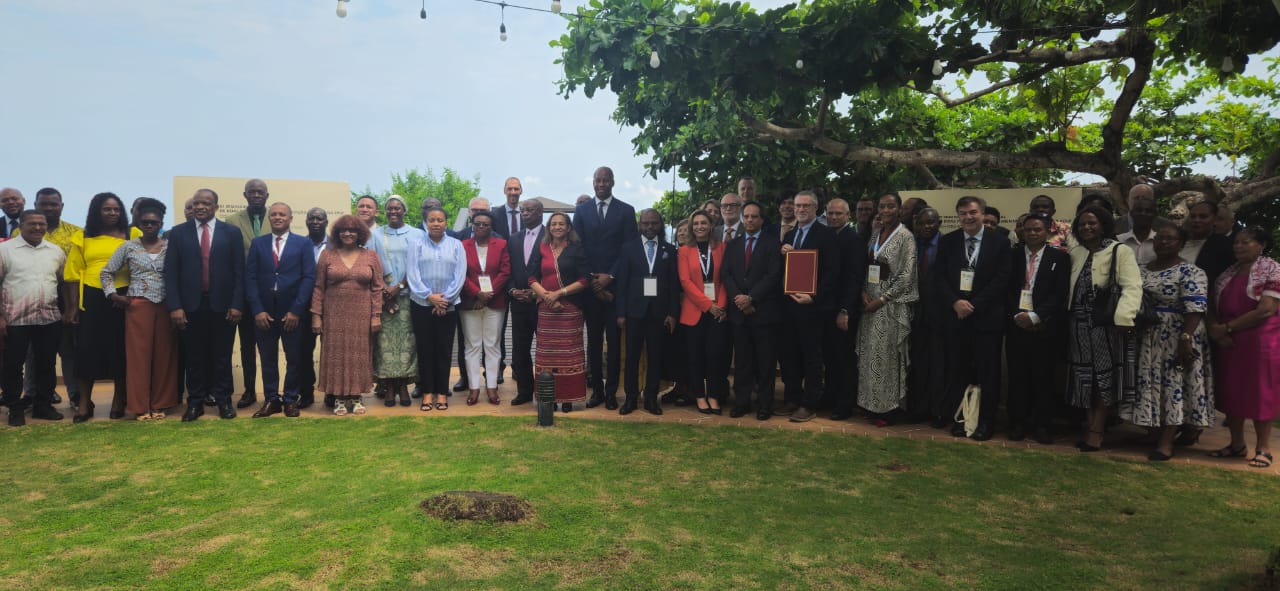
Between December 3 and 5, 2024, São Tomé and Príncipe hosted the 3rd International Seminar on Best Practices in School Feeding in the Community of Portuguese-Speaking Countries (CPLP).
Over two days, the seminar facilitated discussions through panels and roundtables on topics such as school gardens, school feeding with local products, training of professionals involved in school feeding programs, and challenges related to food security.
The event brought together education ministers from the nine CPLP member states, representatives from the United Nations, the WFP Centre of Excellence Against Hunger, the WFP in São Tomé and Príncipe, the National Education Development Fund (FNDE), the Brazilian Cooperation Agency (ABC), as well as international and local partners.
For João Ima-Panzo, Director of Cultural Action and the Portuguese Language at CPLP, school feeding is a central issue for all CPLP countries. “Many children cannot stay in school because they don’t have enough to eat. These programs, in some way, help reduce this phenomenon,” he stated.
Daniel Balaban, Director of the WFP Centre of Excellence Against Hunger, expressed hope for a better future for children in CPLP countries. “With cooperation and everyone involved, I am absolutely confident that by 2030, all children in Portuguese-speaking countries will be in school and receiving quality meals,” he said.
Brazil sent a delegation to the event, including representatives from the ABC, FNDE, the Centre of Excellence, as well as school cooks and nutritionists who were champions of the 2024 edition of the reality show Vida de Merendeira.
During her presentation, Karine Santos, General Coordinator of the FNDE, emphasized the role and importance of family farming in the National School Feeding Program (PNAE). “It is family farming that provides our students with the most adequate and healthy school meals in school settings. There are significant scientific studies showing that pesticide-free, fresher foods, those from short production chains, reach students thanks to family farming,” she said.
Paola Barbieri, a project analyst at the ABC, highlighted the event’s commitment to strengthening school feeding programs within the community’s countries. “This is another important milestone for the global school feeding agenda,” she stated.
On the third day, a High-Level Conference brought together authorities on school feeding from CPLP countries. During the conference, the Global Coalition for School Feeding was presented, an initiative led by the World Food Programme (WFP) aiming to integrate CPLP into the global agenda for sustainable school feeding.
Tribute to Brazilian and São Toméan Cooks

One of the most anticipated moments was the participation of the champions of the reality show Vida de Merendeira. Cooks Josefa Graciene Ribeiro, Leila Espinoza, and Sarah Jane Ribeiro, alongside nutritionists Janaína Barbosa, Elianne Arruda, and Marcelia Prado, shared their experiences and discussed the importance of valuing local products and food education in schools.
They also shared knowledge with all attendees, presenting how school menus are prepared in Brazil, the collaboration between cooks and nutritionists, the role of family farming in creating nutritious and healthier menus, and their experience adapting meals for children with special needs, allergies, and food intolerances.
Learning About São Toméan School Feeding: Gastronomic Showcase and School Visit

Another highlight was a gastronomic showcase of dishes served in São Toméan school canteens during the conference lunch. The event underscored the role of school feeding as a tool for food security, social inclusion, and economic support for local communities.
The dishes served were all prepared by São Toméan cooks, featuring typical island meals provided to children daily.
On the morning of December 6, the Brazilian cooks and nutritionists visited Agostinho Neto School, which serves approximately 225 students aged 6 to 14.
They observed the children’s snack time, where rice, beans, and pork were served, and met local cooks to see firsthand how meals are prepared using wood-fired stoves.
Outcomes

At the end of the conference, CPLP member states signed the Coalition for School Feeding Commitment Charter, reaffirming their dedication to developing sustainable school feeding programs.
The resolutions emphasized promoting the purchase of food from family farms, training professionals in the sector, and adopting cross-sectoral policies to advance the Sustainable Development Goals (SDGs).
The seminar and conference reinforced São Tomé and Príncipe and Brazil’s roles as leaders in school feeding initiatives within the CPLP, strengthening South-South cooperation and the exchange of best practices among Portuguese-speaking countries.




